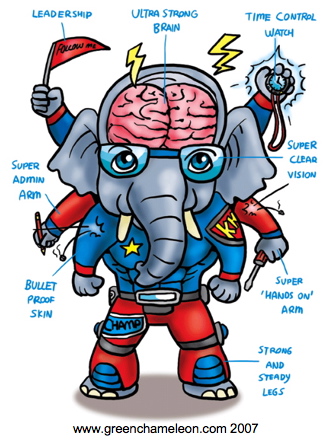Wikis are now making their way into corporations where they are used as collaborative software to handle such tasks as project management, tech support, research and development, event planning and customer relationship management
Hier die Übersichtsseite (“CEO Guide to Technology”), darin u.a. das:
- Wild About Wikis
Intel, Motorola, Sony—they’re among the companies using Web-collaboration tools to promote products and foster teamwork among employees
Tip Sheet: Wiki Etiquette
This short primer may help you through the perils and pleasures of collaboration on intra-company wikis
Corporate Wikis Go Viral
Two European companies [frogpond: Nokia und Dresdner Kleinwort] show how the collaborative practice spreads from early adopters of wikis at work to become mainstream business tools
Nicht zu vergessen ein Podcast-Interview mit Andrew McAfee von Rachel King (mp3), in dem er neben verschiedenen Einsatz- und Anwendungsszenarien auch Aspekte der Einführung anspricht.
Sind Sie am Einsatz von Wikis in ihrem Unternehmen interessiert? Sprechen Sie mich an.
